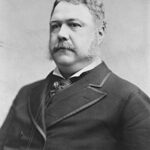The Presidential Decision That Defied Popular Opinion
President Chester A. Arthur faced intense political pressure in 1882 when Congress passed the Chinese Exclusion Act. The legislation sought to ban Chinese immigration for twenty years. Arthur recognized this violated the 1880 Angell Treaty with China. 📊 Anti-Chinese sentiment had reached fever pitch following economic downturns in California. Labor unions blamed Chinese workers for wage depression and job competition. Popular newspapers fueled xenophobic attitudes with inflammatory rhetoric about the “Yellow Peril.”
Arthur’s Principled Stand
On April 4, 1882, Arthur vetoed the Chinese Exclusion Act despite overwhelming congressional support. He argued the twenty-year ban was “unreasonably long” and violated treaty obligations. ⚠️ Arthur faced fierce criticism from his own Republican Party and Western constituents. His veto message emphasized America’s commitment to international agreements and fair treatment of immigrants. The president demonstrated remarkable moral courage by prioritizing diplomatic integrity over political expediency. Arthur’s decision reflected his transformation from a machine politician to a principled leader.
Impact:
Immediate Political Consequences
Arthur’s Chinese Exclusion Act veto triggered intense political backlash across the nation. Western Republicans condemned the president as out of touch with working-class concerns. 🔥 Labor organizations launched protest campaigns demanding congressional override of the veto. Congress quickly passed a revised ten-year exclusion bill that Arthur reluctantly signed in May 1882. Despite the compromise, Arthur’s initial stand preserved some diplomatic credibility with China.
Long-term Historical Significance
Historians praise Arthur’s veto as an early example of presidential civil rights leadership. His decision demonstrated that moral principles could influence immigration policy during xenophobic periods. 🌍 The veto established precedent for executive resistance to discriminatory legislation targeting specific ethnic groups. Arthur’s stand influenced future debates about American values versus popular prejudices. Modern scholars recognize this decision as Arthur’s finest presidential moment. The veto showed how transformed politicians could rise above partisan pressures. 📉 Though Chinese exclusion ultimately became law, Arthur’s resistance provided a moral counterpoint to discriminatory impulses that would inspire future civil rights advocates.
